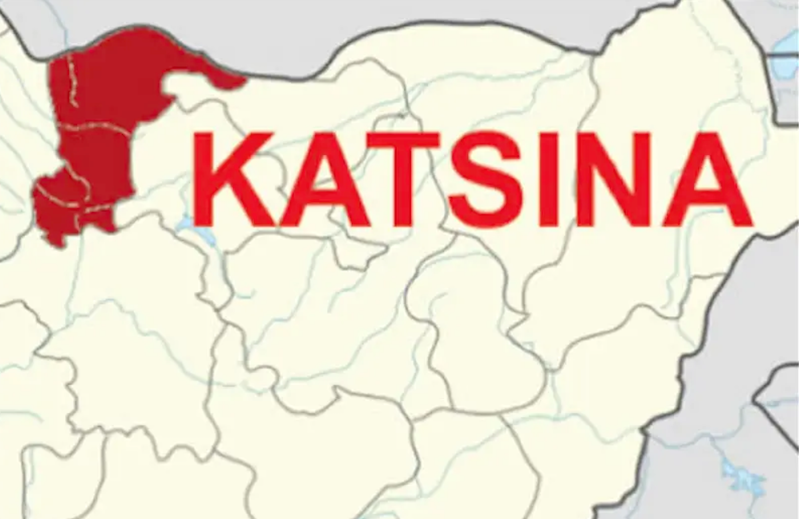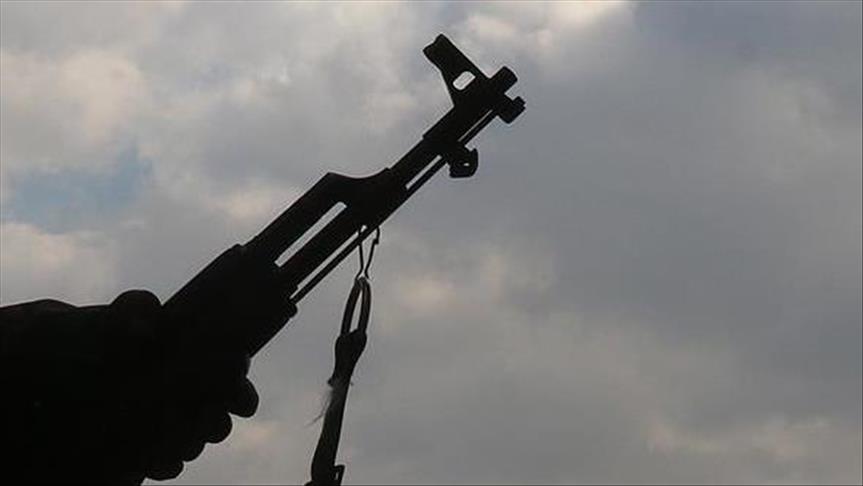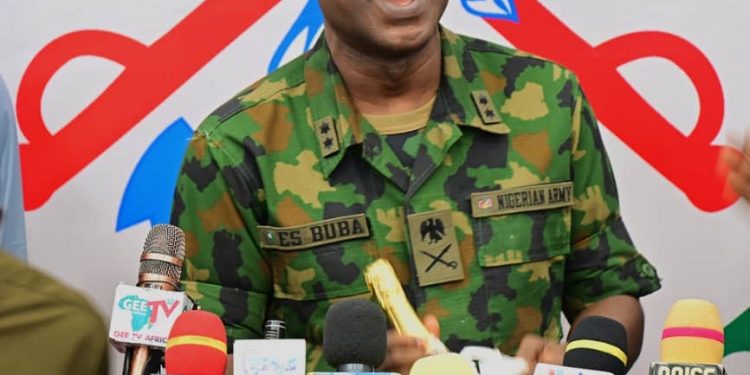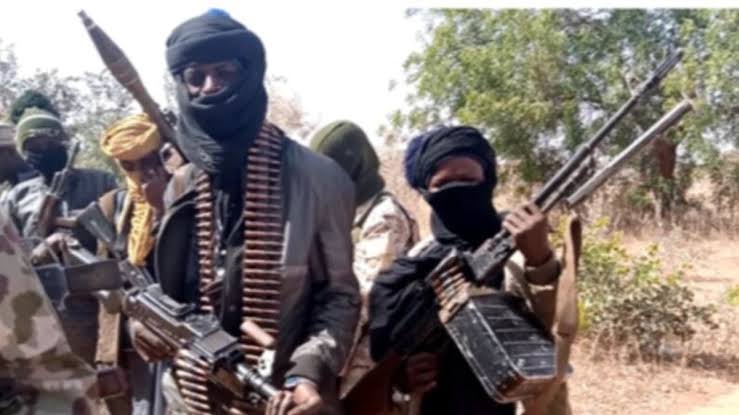Irrespective of the circumstance, the death of an individual or a group of persons is a painful occurrence, and it is even more so when it occurs in an extrajudicial violent manner. In this light, the death of 16 “suspected kidnappers” in the hands of a mob in Uromi town of Edo State, on March 27, 2025, is most unfortunate and highly regrettable. As the story goes, a total number of 25 “hunters” were returning from Port Harcourt in Rivers State to their home-base in Kano State, when at a certain location in Uromi town they were accosted by a group of vigilantes, who upon searching their vehicle found concealed Dane guns, prompting suspicions of banditry that eventually resulted in a video-taped lynching of 16 of the “suspects.”
Expectedly, the unfortunate mob incidence has been widely condemned by various individuals and groups, including President Bola Tinubu and the Governor of Edo State, Monday Okpebholo, who has made peace overtures to the government and people of Kano State with a view to dousing related tensions and forestalling possible reprisals. Also, the Governor has announced that the Federal government, in collaboration with his administration, has established a “Fact-finding Committee” to investigate the incidence with a view to ensuring “justice for all those affected.”
“Half a story has never been told,” goes a popular aphorism. If the said Fact-finding Committee is genuinely interested in the facts of the mob incidence, then it would have no option than to seek answers to the following questions: What is the rationale behind a group of 25 able-bodied youths traveling from one end of the country to another for the sole purpose of hunting? What types of game were they hunting with Dane guns in Port Harcourt creeks and swamps, where fishing is the main occupation? Did anyone see the hunters gun down any wild animal, or purchase same from them? Where were they domiciled in the city during their hunting expedition?
As always happens in public investigations in Nigeria, the answers to these questions may never be known. Nevertheless, an underlying fact of the unfortunate incidence is that it was borne of uncontrolled anger characteristic of mob violence, which is often a product of perceived injustice or oppression and a lack of faith in societal judicial process. Had the Uromi vigilantes been acquainted with the wise saying that “a moment of restraint in a moment of anger saves a thousand moments of regret,” they would certainly not have lynched the “suspected kidnappers.”
While the victims of the mob action are said to have hailed from Kano State, they may have originated from any of the multiplicity of ethnic groups that make up Northern Nigeria, including the dominant ones of Hausa, Fulani, and Kanuri. For, amongst the inhabitants of Uromi and other towns in Edo state, there is palpable anger and frustration over the unpardonable atrocities being committed by “suspected Fulani herdsmen”, who are operating with impunity in surrounding forests. Hence, the Uromi vigilante group must have erroneously assumed that the “suspected kidnappers” were “Fulani herdsmen-bandits” that should be dealt with summarily, even as they might have known that their action was extrajudicial and unjustifiable.
To situate the said anger being borne towards “suspected Fulani herdsmen-bandits” in proper perspective, let’s hear from a reliable source familiar with the issue: “The so-called Fulani herdsmen who have taken over our forests and farmlands are not even herdsmen, because most of them do not have cattle or goats or sheep for grazing. They are mere criminals and bandits armed with weapons like AK-47 assault rifles, Dane guns, machetes, daggers, spears, bows and arrows, etc. They are barbaric and brutal as they operate with impunity, killing and maiming innocent people, especially farmers. They often waylay and kidnap motorists, and demand ransom figures as high as 50 million Naira. Sometimes, they heartlessly kill their victim even when the ransom has been paid. The security agencies seem helpless over the whole issue …”
If the above-stated account sounds harrowing, then the following narration concerning a poor farmer’s wife who is now widowed, is heartrending: “One early morning, the farmer and his wife were working on their farm when they were abducted by armed Fulani Herdsmen and led into the dense forest. The man was severely beaten and tied to a tree, while his wife was repeatedly gang-raped right under his nose. The wife was subsequently released for the purpose of conveying the ransom request of 10 million Naira to their relations. The ransom was eventually paid, but instead of the man regaining his freedom, it was his corpse that was released to his relations.”
According to a retired private security agent, who has been involved in a couple of kidnap rescue operations in Edo state, “The incidences of banditry being perpetrated against the people of Edo State by Fulani herdsmen are too numerous to recollect. There are uncountable instances of deliberate destruction of farmers’ crops, just as there are innumerable cases of brutal slaying of kidnap victims. The herdsmen-bandits are everywhere in the surrounding forests and remote farmlands waiting to kidnap, rape, and kill. Edo State is made up mainly of farming communities, but the people, particularly women, can no longer go to their farms for fear of being kidnapped, raped, or killed. This is precipitating food shortages across the State and inducing hunger and starvation in many communities.”
When Yours Sincerely asked the retired security agent if there is any viable solution to the banditry of the “suspected Fulani herdsmen” in Edo and other States of the country, his response was damning: “Its most unfortunate that everyone seems to be feigning ignorance of the murderous banditry of the gun-toting Fulani herdsmen rampaging across the country. Even you (this writer) are part of the problem. You keep referring to them as ‘suspected Fulani herdsmen’ instead of calling a spade a spade. What further evidence do you need to determine that they are blood-thirsty criminals and murderers? Look, we are all sleepwalking into a conflagration that may consume the entire country if care is not taken. Can’t you see that there is a diabolical plot by some ethno-religious forces to destroy Nigeria through the banditry and terrorism of Fulani herdsmen?
Angry and Conspiratorial as the above remarks may seem, there is indeed a correlation between the said atrocities of the Fulani herdsmen-bandits in Edo State and their murderous activities in several other locations across the country, where they have engaged the host communities in bloody clashes, resulting in death, destruction, and misery as thousands are rendered homeless and forced into Internally Displaced Persons (IDP) camps. Here, the ongoing Herdsmen-Farmers conflict in the Middle Belt comes in for mention. For, the region has become the epicentre of Fulani banditry in Nigeria.
Otherwise known as North-Central Nigeria, the Middle Belt comprises a multiplicity of ethno-linguistic groups, which makes the region a microcosm of the Nigerian macrocosm. Its people are mainly sedentary farmers reputed for producing staple foods such as yam, cassava, maize, rice, beans, sweet potato and cocoyam, with Benue State earning the sobriquet of “The food basket of Nigeria.” Regrettably, in the last one and half decades, the sedentary farming lifestyle of the people of the region has come under direct attack from ethnic Fulani herdsmen searching for grazing lands for their cattle, thus occasioning violent clashes that have degenerated into daily orgies of bloodletting. Most unfortunately, the ongoing Herdsmen-Farmers conflict has ineluctably exacerbated Nigeria’s prevailing food crisis.
The Fulani, an ethnic group whose geographical presence transcends the boundaries of several African countries, are otherwise known as the Fula or Fulbe people. They are mainly bilingual as they speak a combination of Hausa, Wolof, Soninke, and Arabic languages. Politically, they are highly influential in several West African states due to the 18th and 19th Century Islamic Jihads prosecuted by Fulani personalities, including Usman dan Fodio whose 1804 Jihad gave rise to the Sokoto Caliphate. Although they are categorized into pastoral-nomadic, semi-nomadic, and town or settled, the Fulani are generally considered as nomads whose livelihood revolves around cattle herding. They inhabit the Northern parts of Nigeria, grazing their livestock in open pastures. But with climate change and desertification taking a devastating toll on their pastures, they are forced to migrate Southwards into the Middle Belt and other areas, clashing with the sedentary farmers on their grazing routes in what has come to be known as the Herdsmen-Farmers Conflict.
With Benue, Plateau, and Nasarawa States bearing the brunt of the Herdsmen-Farmers conflict, an estimated 400,000 lives have been lost, with more than 2.5 million persons displaced, as village communities are destroyed and the inhabitants mercilessly slaughtered. Amidst the bloodbath, a conspiracy theory has arisen that the Fulani herdsmen’s banditry is a grand-design aimed at ethnic Fulani geopolitical dominance and Islamization of Nigeria. During his tenure, President Muhammadu Buhari, an ethnic Fulani, was widely perceived as a sympathizer of those nefarious designs.
Upon assuming the reins of power in May 2023, President Bola Tinubu, an ethnic Yoruba, was expected to eradicate the Fulani herdsmen’s banditry, but almost midway into his tenure, no significant achievement has been recorded in that direction. Meanwhile, the bloody conflict is fast-assuming an ethno-religious hue, as Islamic fundamentalist terror groups like Boko Haram, Islamic State in West Africa Province (ISWAP), and other lesser-known terror groups seek to join the fray, in what portends a further escalation of an already-volatile situation.
Back in 2019, President Buhari sought to implement a 10-year “National Livestock Transformation Plan” that was designed to curtail open-grazing in Nigeria through the creation of grazing reserves and ranches, in order to quell the Herdsmen-Farmers conflict. Apparently, his lack of political will resulted in the non-implementation of the plan. And, as predicted by the International Crisis Group in its May 4, 2021 report titled “Ending Nigeria’s Herder-Farmer Crisis: The Livestock Reform Plan,” the Herdsmen-Farmers conflict is bound to escalate as climate change and desertification further devastates the Sahel region and compels more Fulani herdsmen to migrate to the Middle Belt and other parts of Nigeria.
Can the Fulani herdsmen’s banditry ever be eradicated from Nigeria? Many are skeptical, but some share optimism, saying that it can be eradicated if only the political will can be summoned by the country’s leaders, who are often scared of seizing the bull by the horns whenever the national issue borders on ethnocentrism, religious bigotry, and other centrifugal factors. Although, when destruction begins to stare the country in the face, as the Fulani herdsmen’s banditry portends, the leaders will have no option than to summon that elusive political will.









